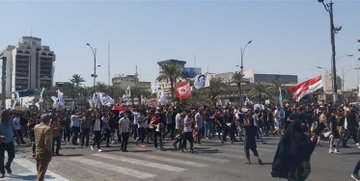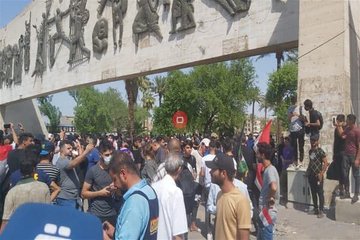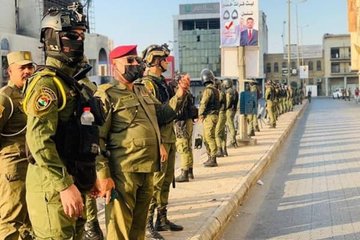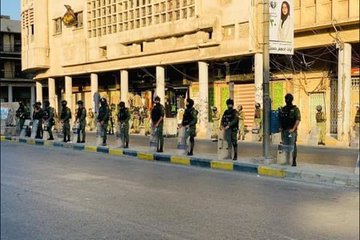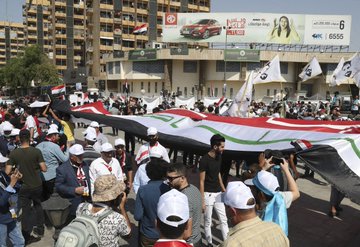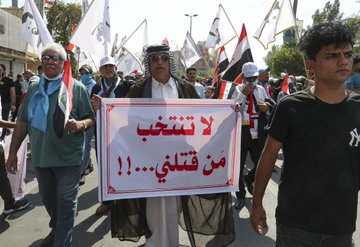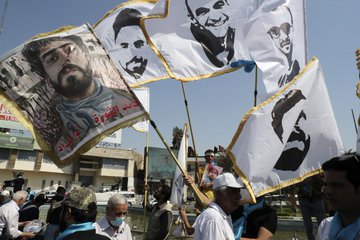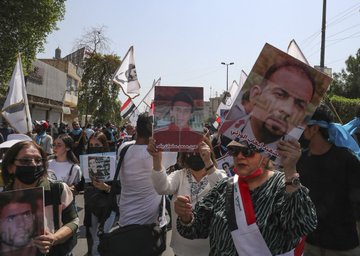I'll say this for Alyssa Milano, she seems more comfortable with her weight gain now then she did when she was attacking Jay Mohr. If you missed it, the faded TV child actor is back in the news. She's bothered that country singer Jason Aldean and his wife are dressing their children in anti-Joe Biden T-shirts.
See, it's really important for the world to know what Alyssa thinks about everything -- or at least she thinks that in her mind.
You might think, "They're children! She needs to learn to back off!"
But then you'd be forgetting that Alyssa's a Karen, an entitled White bitch, so she feels she has to weigh in on everything.
It's not like she has a job, after all. She can't get work anymore.
She's lucky to get a guest spot. She can't act. She's running up on fifty. There are actresses in her age range who are talented. She's lucky to get a guest spot every few years.
She has no career. She stays married to her husband despite whispers of cheating on his part due to the fact that if she leaves him she has to face the fact that her career is over. Instead, she gets to pretend that Mr. CAA needs a lot of her 'help' so she's far too busy to work.
No one wants to hire her.
She's got no talent. Her looks faded and her waist is thickening. She has more negatives than any other celebrity you can think of because she's such a bitch. Rose McGowan has rightly called her out. When Tara Reade came forward, Alyssa smeared her and only stopped when she grasped that her attacks on Tara were hurting her (Alyssa's) Twitter 'popularity.' She was part of Time's Up -- that ridiculous front group for Democrats that pretended to defend women.
You may remember that a few years back, she had a LIFETIME series and a CW series, she said, that were about to come to fruition. They never panned out. Because she's so hated by America. Her negatives -- because she can never shut the f**k up -- are so high that producers now know they can't hire her and build a series around her because the possible audience is so small.
Anyone else would move on but not Alyssa. She's desperate to be famous.
It's a shame she cared more about fame than she did about acting. If she'd worked half as hard at learning how to act she might actually now be able to deliver a performance.
At any rate, good luck with the weight gain, Alyssa.
This is C.I.'s "Iraq snapshot:"
Friday, October 1, 2021. Iraqis take to the streets as The October Revolution continues while in the US the war on journalism, freedom of speech and the First Amendment gets very little attention.
The war on Iraq has led to many other wars. Julian Assange is part of that war. WIKILEAKS published truths about Iraq that the US government didn't want known, that the US government had lied about. Monday April 5, 2010, WIKILEAKS released US military video of a July 12, 2007 assault in Iraq. 12 people were killed in the assault including two REUTERS journalists Namie Noor-Eldeen and Saeed Chmagh. Lies is what the US government had served up for ten years -- they lied to the American people, to REUTERS, to the whole world. Tell the truth and watch them go after you. It's appalling. And now we've learned that the CIA plotted to kidnap Julian Assange and to assassinate him and that's appalling.
BIG: On Sunday, a new report claimed the US secretly considered killing Julian Assange, and laid criminal charges against him primarily to "legalize" a kidnap operation. Now the former CIA Director who pushed the scheme has—in a failed damage control effort—confirmed it is true.
And he's linking to Michael Isikoff's Tweet:
Jeffrey St. Clair (COUNTERPUNCH) explains:
The news that the Trump inner circle considered assassinating Julian Assange came as a shock to MAGA land, but not to anyone else who’d been paying the slightest attention to Trump’s hand-picked CIA director Mike Pompeo, who had publicly declared Wikileaks, and its founder, “a non-state hostile intelligence service.” As reported last week by Yahoo News, in the spring of 2017, just a few months after taking office, Trump himself asked the CIA to develop plans for whacking Assange. He demanded several options to choose from. And the CIA promptly complied, developing several “sketches” for extracting Assange from the Ecuadoran embassy in London and disposing of the irksome journalist.
Of course, Trump had spent much of the previous year singing the praises of the Australian muckraker, as Wikileaks posted troves of damning emails and documents from the DNC and HRC’s campaign itself, disclosures which may have tipped the election to Trump. These campaign-stump encomiums to Assange by Trump led many of Assange’s supporters to believe that Trump might pardon Assange. But loyalty is fleeting in Trump World and it now seems likely that if Trump had pardoned Assange it would have been as the prelude to a hit.
Even though Obama’s crackdowns on whistleblowers rivaled Nixon’s in their ferocity, he backed off from indicting Assange, even after the DNC hacks, perhaps fearing that it might have left a permanent blemish on his record. Whether he, too, secretly contemplated covert actions against Assange is not yet known. Though both Hillary and Democratic Party insiders like Bob Beckel openly mused about droning both Assange and Edward Snowden.
Trump, however, showed no such fussiness or hesitancy. Within weeks of Trump’s inauguration, the CIA’s new leadership team of Pompeo and “Bloody” Gina Haspel were plotting new ways to covertly disrupt Wikileaks. These efforts intensified after Wikileaks announced that it had acquired a huge set of files containing the CIA’s own hacking tools, which it had dubbed Vault 7.
One of the problems for Trump and Pompeo faced was that federal law would have required a presidential finding in order to initiate any kind of action against Assange and they preferred to go after him without leaving any documentary trail. Pompeo’s devious solution was to declare Wikileaks “a non-state hostile intelligence service,” a classification that magically turned Assange and Wikileaks from a “target of collection to a target of disruption,” without any inconvenient oversight from the congressional intelligence committees.
By summer it seems the assassination option had been supplanted by a rendition scheme, where Assange would be abducted from the Ecuadoran embassy, transferred to a third party, and then taken to the United States for interrogation and eventual trial. The problem was that Assange had not been indicted by the Justice Department and his kidnapping would likely endanger any future trial. As a consequence, Pompeo and Trump urged Jeff Sessions to expedite filing charges against Assange, which the Justice Department secretly did a few months later. As the weeks ticked by, Pompeo even considered renditioning Assange to a CIA black site, where he would receive the customary treatment of torture, interrogation, and perhaps even elimination.
The CIA’s obsession with Assange showed distinct signs of collective paranoia and its plans for neutralizing him quickly devolved from the sinister to the absurd, including bizarre scenarios involving car crashes and gun battles with Russian agents on the streets of London, all of this being spun out while the Congress, the FBI and a Special Prosecutor were probing the ties between the Trump campaign and Wikileaks. Sharper than a serpent’s tooth is the ingratitude of a potentate on the ropes.
Naturally, the explosive Yahoo report has received almost no attention in the mainstream US press. Even after the revelations of the Church Report, the fact that the CIA continues to kill people (or contract out their killing) remains a forbidden topic. George Carlin’s old routine about the 7 dirty words you can’t say on TV, left out the dirtiest word of all: assassination.
There are, of course, other, quieter ways to kill and Biden, no less eager to claim Assange’s head than Trump, seems to have settled on a more insidious method: allowing Assange to waste away in the dark chambers of a prison, whether in Belmarsh, where he is now confined, or, if extradited, in some even more austere Supermax in the American outback.
It's outrageous.
What's also outrageous is that outlets largely ignore the news and that certain outlets, WSWS being one, when they cover the story leave it at that. They ignore the targeting of Laura Poitras and Glenn Greenwald, the move to strip them of their rights by insisting they weren't journalists, they were "information brokers." The US government plotted against journalists. The US government declared war on journalism and on the First Amendment. That's a big story.
Jimmy Dore speaks with Glenn Greenwald in the video below.
Jimmy highlights one of Mike Pompeo's embarrassing public appearances in the video above. Caitlin Johnstone offers this analysis of Pompeo:
Mike Pompeo is a literal psychopath. He chuckles about lying, cheating and stealing with the CIA. He defends murderous sanctions and openly admits to using them to foment civil war in empire-targeted nations. He defends assassination. He strongly implied the US would interfere in UK politics if Jeremy Corbyn became Prime Minister. And yet somehow he escaped the Trump administration the mass media so despised with nary a scratch of media criticism on him.
This is because Mike Pompeo, as full of centipedes and demon spawn as his enormous head may be, is highly representative of the mainstream US power establishment. He is the embodiment of the empire’s values. He’s just one of its less-subtle representatives.
Moving to the topic of 'helping,' many rightly condemn the International Money Fund. Some insist, however, thta it helps struggling countries. Sarah Lazare (IN THESE TIMES) covers reality:
Loans from the International Monetary Fund (IMF) have been widely criticized for saddling poor, desperate cash-strapped countries with debt, while requiring a host of damaging reforms as a condition, from the gutting of public health systems to the imposition of austerity measures.
But on top of the debt principal itself, and the interest rates countries must pay on that principal, there is a lesser-known — yet deeply pernicious — cost that is tacked on for those countries most in need: surcharges.
Surcharges are extra fees that are imposed on borrowing countries on top of all the other costs, ostensibly to incentivize countries to pay back their debts more quickly, and to protect the finances of the IMF. But according to a new report from the Center for Economic and Policy Research (CEPR), a left-leaning think tank, these fees are predatory and punishing, imposing devastating costs on countries that — by definition — are most desperate for funds.
Despite raking enough money each year to make every Iraqi -- all forty million according to the CIA estimate (Iraq's not had a population census in decades) -- a millionaire many times over, Iraq went begging to the IMF. Shi'ite cleric Grand Ayatollah Ali a-Sistani warned against doing that.
As elections approach, al-Sistani has been urging Iraqis to participate in the upcoming elections. THE NEW ARAB looks at the issue of women's quotas:
As Iraq gears up for the approaching elections, one of the most noticeable developments is the fierce competition growing over the women's quota. Women have been allocated one out of the three parliamentary seats in every electoral district, and the fight is on to win these seats, especially in the north and west of the country, a region bearing the scars of the "War on Terror" and which has yet to see a return to stability.
According to the new election law in Iraq, the women's quota will ensure that the number of female MPs (83) will equal the number of electoral districts in the next parliament.
According to the Iraqi electoral commission, there are over 900 female candidates out of a total number of around 3,500 for the elections due to take place in October. Among the candidates are dozens of women who will be competing for seats in Anbar, Nineveh, Saladin, Kirkuk, Diyala, Baghdad and Babel. This will be the fifth parliamentary election since the American invasion in 2003.
Iraq's elections typically have some violence around them. Dler S. Mohammed (KURDISTAN 24) reports on one measure being taken with the hope of tamping down on any violence:
The Supreme Security Committee for Elections in Iraq announced on Wednesday that all of Iraq’s airports and border crossings will be closed for three days during the October 10 parliamentary elections.
“All Iraq’s airports, border gates will be closed for three days, starting October 9 until the morning of October 11,” Brigadier Ghaleb al-Attiyah, the committee’s spokesperson, told the Iraqi News Agency.
In addition to these closures, al-Attiyah also said that the movement of vehicles between Iraqi provinces will also be limited and the use of motorbikes inside the cities will be prohibited.
“The movement of vehicles inside the cities will be allowed during those three days to facilitate the movement of the voters between their homes and the polling centers,” he said. “Special procedures have also been taken to help the disabled people vote.”
Al-Attiyah said that the security committee is prepared for election day and emphasized that it has reviewed all possible security challenges it might face.
Security? No security measures protected the protesters who are part of The October Revolution. In fact, security forces are the ones who harassed them, who stalked them, who injured them and who killed them. That's reality. Another reality? Not one person has gone to prison for any of that, not even for murdering the civilian protesters. Layal Shakir (RUDAW) reports:
Hundreds of Iraqis demanded justice for demonstrators killed during the
2019 October (Tishreen) protests at a rally in Baghdad on Friday, the
second anniversary of the protest movement and just over a week ahead of
parliamentary elections.
“This is my son. He went after his rights, his country … he was killed,”
Muhamad al-Zubaidi, carrying a photo of his son, told Rudaw’s Dildar
Harki.
The Tishreen protests condemned state corruption, failing public
services, and high unemployment. They lasted several months and were met
with violence and repression from state forces and militias backed by
Iran that left at least 600 dead and thousands wounded.
The protests forced the resignation of Prime Minister Adil Abdul-Mahdi,
reforms to the electoral law, and the October 10 parliamentary election
that is taking place a year ahead of schedule. Abdul-Mahdi’s replacement
Mustafa al-Kadhimi vowed to bring to justice those responsible for
killing protesters and activists, but few arrests have been made.
The Opposition Forces Gathering, an umbrella group that was birthed from the Tishreen protests, called Iraqis to return to the streets for the anniversary.
Young protesters paraded around the square, carrying the Iraqi flag and
chanting, “Ten die, a hundred die, we insist on the cause.”
Though the elections were a protest demand, many on Friday were calling
for a boycott, carrying posters that read “Voting for the same people
will turn the country into a slaughterhouse” and “Do not vote for those
who killed me.”
 : Sabah Arar/AFP
#Iraq
: Sabah Arar/AFP
#IraqSinan Mahmoud (THE NATIONAL) counts 3,249 people in all seeking seats in Parliament BROOKINGS notes this is a huge drop from 2018 when 7,178 candidates ran for office. RUDAW is among those noting perceived voter apathy, "Turnout for Iraq’s October 10 parliamentary election is expected to be a record low, with a recent poll predicting just 29 percent of eligible voters will cast ballots." Human Rights Watch has identified another factor which may impact voter turnout, "People with disabilities in Iraq are facing significant obstacles to participating in upcoming parliamentary elections on October 10, 2021, due to discriminatory legislation and inaccessible polling places, Human Rights Watch said in a report released today. Without urgent changes, hundreds of thousands of people may not be able to vote. The 36-page report, “‘No One Represents Us’: Lack of Access to Political Participation for People with Disabilities in Iraq,” documents that Iraqi authorities have failed to secure electoral rights for Iraqis with disabilities. People with disabilities are often effectively denied their right to vote due to discriminatory legislation and inaccessible polling places and significant legislative and political obstacles to running for office." And Human Rights Watch Tweets:
Another obstacle is getting the word out on a campaign. Political posters are being torn down throughout Iraq. Halgurd Sherwani (KURDiSTAN 24) observes, "Under Article 35 of the election law, anyone caught ripping apart or vandalizing an electoral candidate's billboard could be punished with imprisonment for at least a month but no longer than a year, Joumana Ghalad, the spokesperson for the Iraqi Independent High Electoral Commission (IHEC), told a press conference on Wednesday." And there's also the battles in getting out word of your campaign online. THE NEW ARAB reported weeks ago, "Facebook is restricting advertisements for Iraqi political parties and candidates in the run-up to the country's parliamentary elections, an official has told The New Arab's Arabic-language sister site."
THE WASHINGTON POST's Louisa Loveluck Tweeted: of how "chromic mistrust in [the] country's political class" might also lower voter turnout. Mina Aldroubi (THE NATIONAL) also notes, "Experts are predicting low turnout in October due to distrust of the country’s electoral system and believe that it will not deliver the much needed changes they were promised since 2003." Mistrust would describe the feelings of some members of The October Revolution. Mustafa Saadoun (AL-MONITOR) notes some of their leaders, at the recent Opposition Forces Gathering conference announced their intent to boycott the elections because they "lack integrity, fairness and equal opportunities." Distrust is all around. Halkawt Aziz (RUDAW) reported on how, " In Sadr City, people are disheartened after nearly two decades of empty promises from politicians."
How to address apathy? Ignore it and redo how you'll count voter turnout. RUDAW reports, "raq’s election commission announced on Sunday that turnout for the election will be calculated based on the number of people who have biometric voter cards, not the number of eligible voters. The move will likely inflate turnout figures that are predicted to hit a record low." As for the apathy, John Davison and Ahmed Rasheed (REUTERS) convey this image:
Iraq’s tortured politics are graphically illustrated in a town square in
the south, where weathered portraits displayed on large hoardings honor
those killed fighting for causes they hoped would help their country.
The
images of thousands of militiamen whose paramilitary factions battled
ISIS hang beside those of hundreds of young men killed two years later
protesting against the same paramilitaries.
After the election, there will be a scramble for who has dibs on the post of prime minister. Murat Sofuoglu (TRT) observes, "The walls of Baghdad are covered with posters of Iraq’s former leaders, especially Nouri al Maliki and Haidar al Abadi, as the country moves toward its early elections on October 10. Both men however were forced out of power for their incompetence, and yet they are leading in the country’s two powerful Shia blocks." Outside of Baghdad? THE NEW ARAB explains, "However, in the provinces of Anbar, Saladin, Diyala, Nineveh, Kirkuk, Babel and the Baghdad belt, candidates have focussed on the issue of the disappeared and promised to attempt to find out what happened to them."
Shi'ite cleric Moqtada al-Sadr has 90 candidates in his bloc running for seats in the Parliament and one of those, Hassan Faleh, has insisted to RUDAW, "The position of the next prime minister is the least that the Sadrist movement deserves, and we are certain that we will be the largest and strongest coalition in the next stage." Others are also claiming the post should go to their bloc such as the al-Fatah Alliance -- the political wing of the Badr Organization (sometimes considered a militia, sometimes considered a terrorist group). ARAB WEEKLY reported, "Al-Fateh Alliance parliament member Naim Al-Aboudi said that Hadi al-Amiri is a frontrunner to head the next government, a position that can only be held by a Shia, according to Iraq’s power-sharing agreement." Some also insist the prime minister should be the head of the State of Law bloc, two-time prime minister and forever thug Nouri al-Maliki. Moqtada al-Sadr's supporters do not agree and have the feeling/consensus that, "Nouri al-Maliki has reached the age of political menopause and we do not consider him to be our rival because he has lost the luster that he once had so it is time for him to retire."
In one surprising development, Dilan Sirwan (RUDAW) has reported: "Iraq’s electoral commission aims to announce the results of the upcoming parliamentary elections on October 10 within 24 hours, they announced on Thursday following a voting simulation."
Meanwhile, as October begins, Margaret Griffis (ANTIWAR.COM) notes, "At least 149 people were killed, and 110 more were wounded during September. In August, at least 122 people were killed, and 110 were wounded."
The following sites updated:


